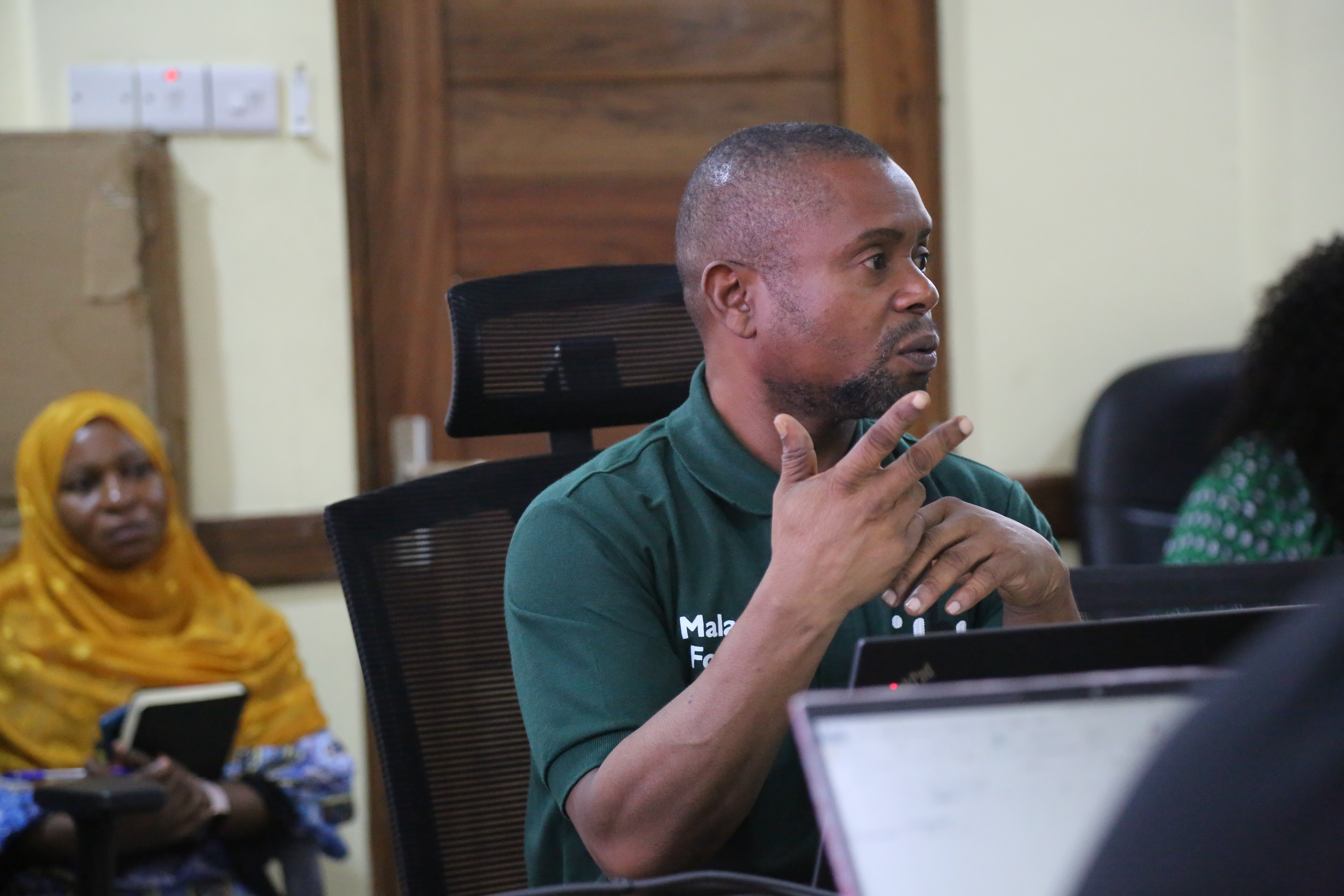
MEETING: Project to test new COVID-19 vaccine introduced

Today, July 24, scientists from the Ifakara Health Institute working on the "BiMVaC01" project met with representatives from the Regional Health Management Team (RHMT) at the Dar es Salaam Regional Commissioner’s offices in Ilala to formally introduce their project.
The RHMT was briefed about the new project which aims to assess and compare the Bivalent Omicron Virus and the Original Wuhan Virus. The project which will be known as “BiMVaC01” will entail clinical trials to evaluate two COVID-19 vaccines, namely the bivalent and monovalent vaccines and their safety among unvaccinated East African adults.
Dr. Said Jongo, the project's Principal Investigator, attended the meeting along with colleagues Dr. Grace Mwangoka, an Ifakara Senior Research Scientist, and Mussa Mtambo, the Project Administrator. They were welcomed by Dr. Ndeniria Swai, the Regional Health Research and School Health Program Coordinator on behalf of the RHMT.
The vaccine to accommodate all virus changes
Dr. Jongo gave a presentation on the "BiMVaC01" project and outlined its objective, which is to perform clinical trials to test a new COVID-19 vaccine, the bivalent vaccine, that would accommodate all the virus' mutations.
It is worth noting that a monovalent vaccination was previously given in the early phases of COVID-19 to offer immunization against the Wuhan virus, the original COVID-A9 virus from China. However, due to the virus's adaptive changes, the vaccination is no longer effective, necessitating the development of a new vaccine, the bivalent vaccine, which would account for all of the virus's mutations.
Tanzania, Kenya to host clinical trials
Tanzania and Kenya will host clinical studies for the two vaccines. In Tanzania, the trials will be done in Mwananyamala, Amana, and Temeke, within the Dar es Salaam region. Participants recruited for the study will be followed up for 6 months with samples from participants in both countries swapped between two laboratories, one in Tanzania and one in Kenya, during the trial period.
Overall, the goal of the study is to determine whether the suggested vaccine can be safely administered to the unvaccinated sub-Saharan adult population without causing harm, which is why clinical trials are being done in the two East African nations.
The RHMT representatives, for their part, assured the Ifakara team of their cooperation in making sure the project is successful and that they eagerly anticipate confirmation of the vaccine's safety.
>> Link to more photos (in the Ifakara photo gallery).
